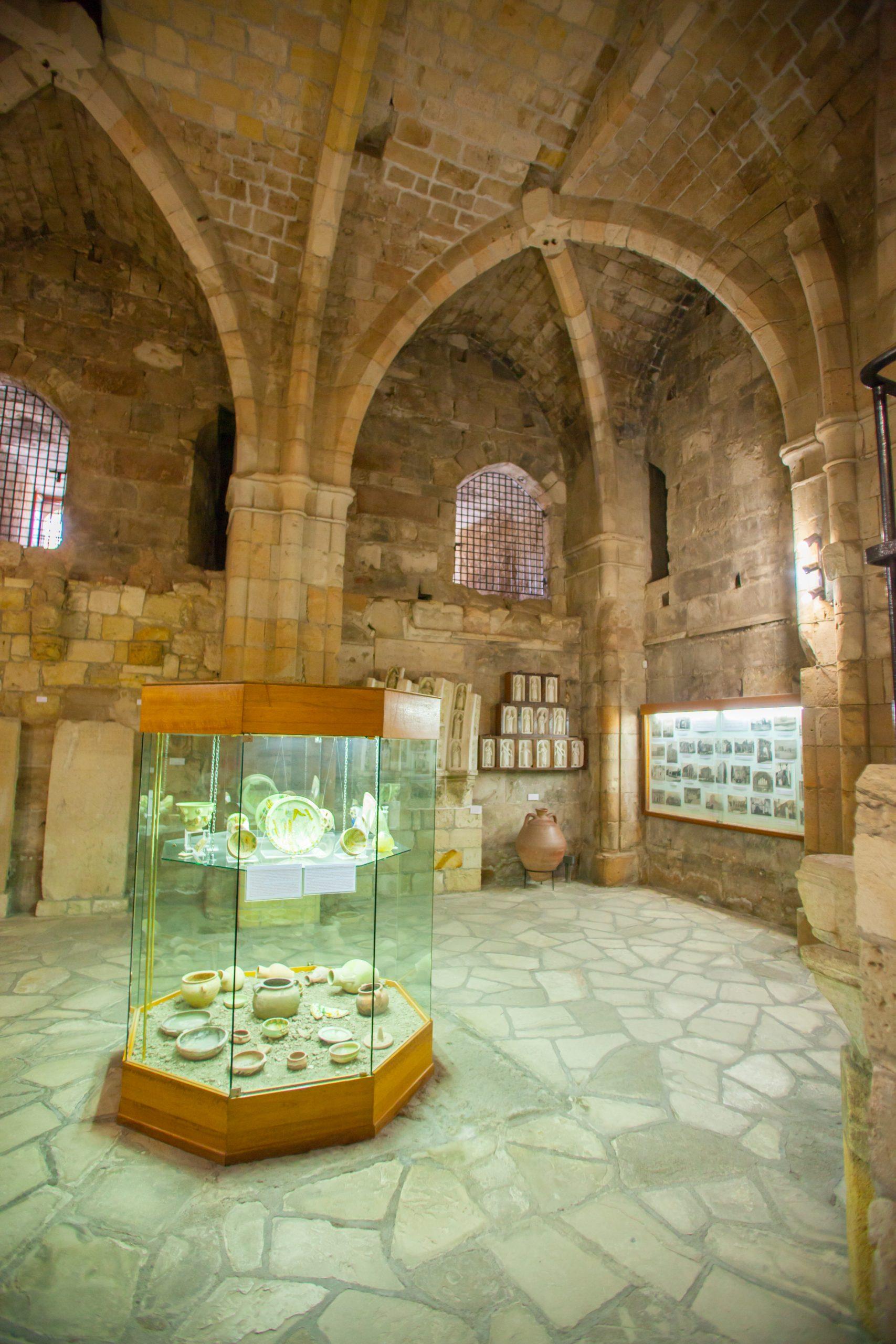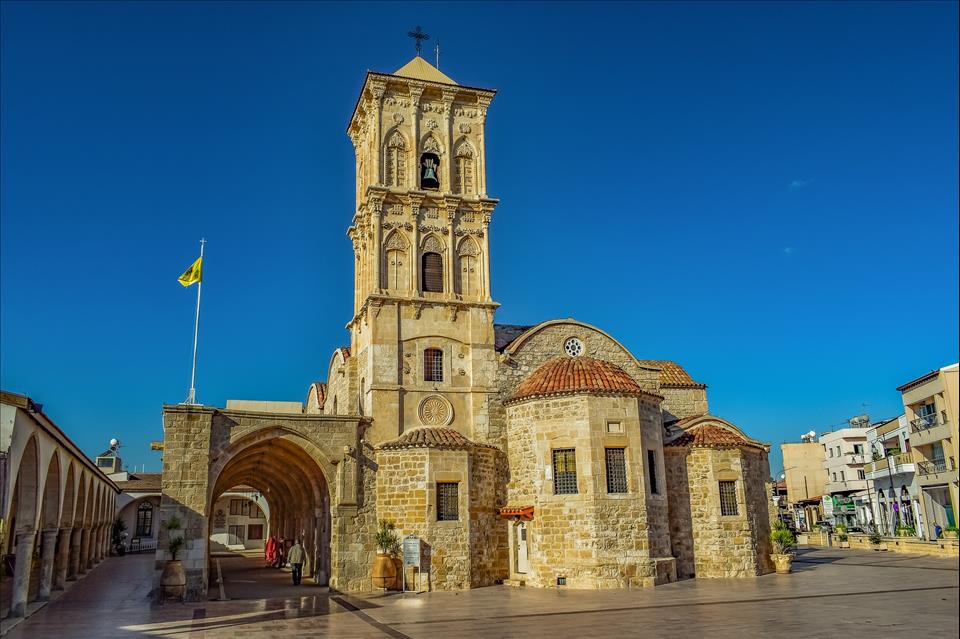
Cyprus: From holiday island to 'holy island'
(MENAFN- Asia Times) In December, Pope Francis will visit Cyprus, making him the second Roman Catholic pontiff to travel to the eastern Mediterranean island – the first being Pope Benedict XVI in 2010.
Primarily Greek Orthodox, Cyprus is home to a small but vibrant Latin community of more than 2,400 people who can trace their roots to the Crusaders. And it is this historical and religious wealth that officials are now looking to promote, in a post-pandemic push to bolster its Covid-ravaged coffers.
Steeped in myth and legend, this small island, which takes up only 9,251 square kilometers of the Mediterranean, has been conquered, coveted and colonized throughout its 10,000-year history by such historical giants as Alexander the Great and England's King Richard the Lionheart.
But while Cyprus has long been considered the gateway to the East – standing at the crossroads of Europe, Asia and Africa – some 2,000 years ago the island was experiencing traffic coming from the other direction, acting as the gateway through which the message of the Gospels was spread to the West.
The Apostles Paul and Barnabas are the missionaries credited with bringing Christianity to Cyprus, and in another religious coup for the island, its first bishop was none other than Lazarus, the man Jesus raised from the dead.
As the story goes, after the Resurrection of Christ and rumors of plots to kill him, Lazarus fled Judea for Cyprus, where he lived for another 30 years before dying for the second, and last, time.
Some 1,100 years later, Cyprus again found itself as a portal between two worlds, when Richard the Lionheart stopped by on his way to the Holy Land to get married. In an unconventional honeymoon move, he then laid waste to the place, took it for his own and sold it to the Knights Templar, who used it as a military base throughout the Crusades.
Today, these snapshots of ancient history remain embedded in the infrastructure of modern Cyprus.
The Church of St Lazarus in Larnaca is said to be built over the legendary bishop's tomb, which was discovered in AD 890. Human remains found in a marble sarcophagus under the altar in 1972 were later identified as part of the saint's relics. They are now kept in a plinth in the central aisle of the church.
A 50-minute drive from the church, along the southern coastal road, lies Limassol Castle, the home of the Cyprus Medieval Museum and the low-vaulted room, lined with tombstones of ancient knights, where Richard the Lionheart is said to have married.
These are just two of the historical riches that litter the length and breadth of the island.
Christodoulos Papachristodoulou, of the Deputy Ministry of Tourism, said:“Due to its geographical position, the island has played host to people coming from all over the Middle East and further away. All of which means Cyprus has a unique blend of monuments, relics and sites that form part of our natural wealth, and we are proud to share them with visitors from abroad.”
Before the pandemic hit, Cyprus attracted 40,000 religious tourists a year – a drop in the glittering Mediterranean Sea compared with commercial tourism's 4 million visitors a year, but officials are hopeful they can generate much greater interest in the island's religious and cultural history.
“Cyprus has a wealth of historical sites that stretch back for centuries, and the potential is high for attracting cultural tourists who want to explore the home of some of Christianity's biggest milestones,” Papachristodoulou said.
Cyprus possesses no fewer than 10 UNESCO World Heritage Listed churches as well as a staggering collection of Byzantine art, meticulously preserved frescos and a number of monasteries steeped in their own myths and legends.

Limassol Castle, where Richard the Lionheart is said to have married. Photo: Cyprus Deputy Ministry of Tourism Credit: Cyprus Deputy Ministry of Tourism
Now, the government's new Cyprus National Tourism Strategy aims to establish the country as a quality year-around destination offering religious, cultural, green and agro-tourism experiences, and investment agencies have been quick to recognize the potential of diversification.
George Campanellas, chief executive of Invest Cyprus, said:“The draw of religious tourism should not be underestimated. There are 10,000 years of history on our island and, in many respects, this is an untapped source, not least for visitors who want more from their holiday experiences.
“The vision of the new Cyprus National Tourism Strategy is to turn Cyprus into a sustainable and technology-smart destination. Thanks to more than 320 days of sunshine a year, there is no 'off season' as such and our tourism strategy aims to incorporate other local and cultural experiences in order to attract investment.
“In this regard, our efforts are focused on diversifying, enriching and improving the quality of the touristic product and investment opportunities into thematic areas.”
Among potential investors currently looking into the deeper riches to be mined from Cyprus tourism is Joseph Borghese, an Indo-Cypriot entrepreneur who has established two companies on the island, Pundi X 365 and Borghese Ventures. Offering tech solutions in tourism and hospitality, fintech, edtech and data analytics, Borghese is hoping to add glamping to his business concerns.
He said:“Sustainable tourism remains a relatively untapped market and it is clear that there are areas of the island that have much to offer tourists throughout the year. The forests of Troodos are not only very scenic and beautiful, they offer a very different tourism experience to the usual sun, sea and sand image, and they are also home to some of the country's most impressive monasteries and historical treasures.
“My aim, once the legislative framework is in place, is to offer tourists an experience that sits in harmony with nature, offering luxury eco-friendly cottages and villas at the heart of rural and religious Cyprus.”
The popular summer holiday image of drunk foreigners spilling out of nightclubs in Ayia Napa often sits at odds with what is a deeply conservative and traditional society – and yet the two have co-existed quite happily for decades.
Constantinos N Phellas, professor of sociology and senior vice-rector at the University of Nicosia, said:“One cannot discount the unique and enduring contribution of Christianity to the island, dating back to [AD 45].
“Christianity was widely adopted throughout the townships and communities in Cyprus, bequeathing an amazing collection of important ecclesiastical monuments and churches over the years and a deeply traditional and conservative outlook in her people.
“As a result, Cyprus has become a one-stop destination for tourists who want it all; from the holiday hotspots to cultural and spiritual experiences that leave the soul enriched.”

Legal Disclaimer:
MENAFN provides the
information “as is” without warranty of any kind. We do not accept
any responsibility or liability for the accuracy, content, images,
videos, licenses, completeness, legality, or reliability of the information
contained in this article. If you have any complaints or copyright
issues related to this article, kindly contact the provider above.
















Comments
No comment